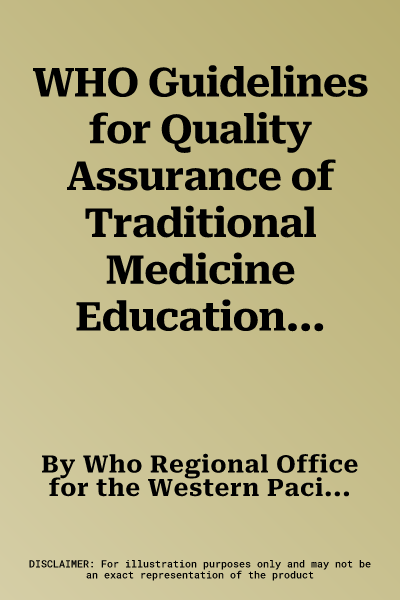These guidelines focus on good practices in traditional medicine (TM)
education and quality assurance. They are organized in two parts. Part A
provides recommendations for good educational practices that would
enable traditional medicine schools in the Western Pacific Region (and
elsewhere internationally) not only to meet acceptable standards at a
basic level in each broad area, but also to develop further the quality
of their programmes in line with consensus about best practice. The
guidelines are complementary to the World Federation for Medical
Education international standards, which have been adjusted slightly to
accommodate TM education. The international standards define basic and
quality development standards across nine broad areas divided in 37
sub-areas. Each sub-areas has operationally defined criteria that serve
as performance indicators for quality assurance in TM education.
Irrespective of the state of development of the TM education system in a
country, each TM school can use the operational guidelines to measure
itself. The international guidelines in Annex 1 can also be used as a
template to develop national versions of the standards.
In part B a framework is provided for establishing a quality assurance
system at national, subregional or regional levels. The framework relies
on peer review.

